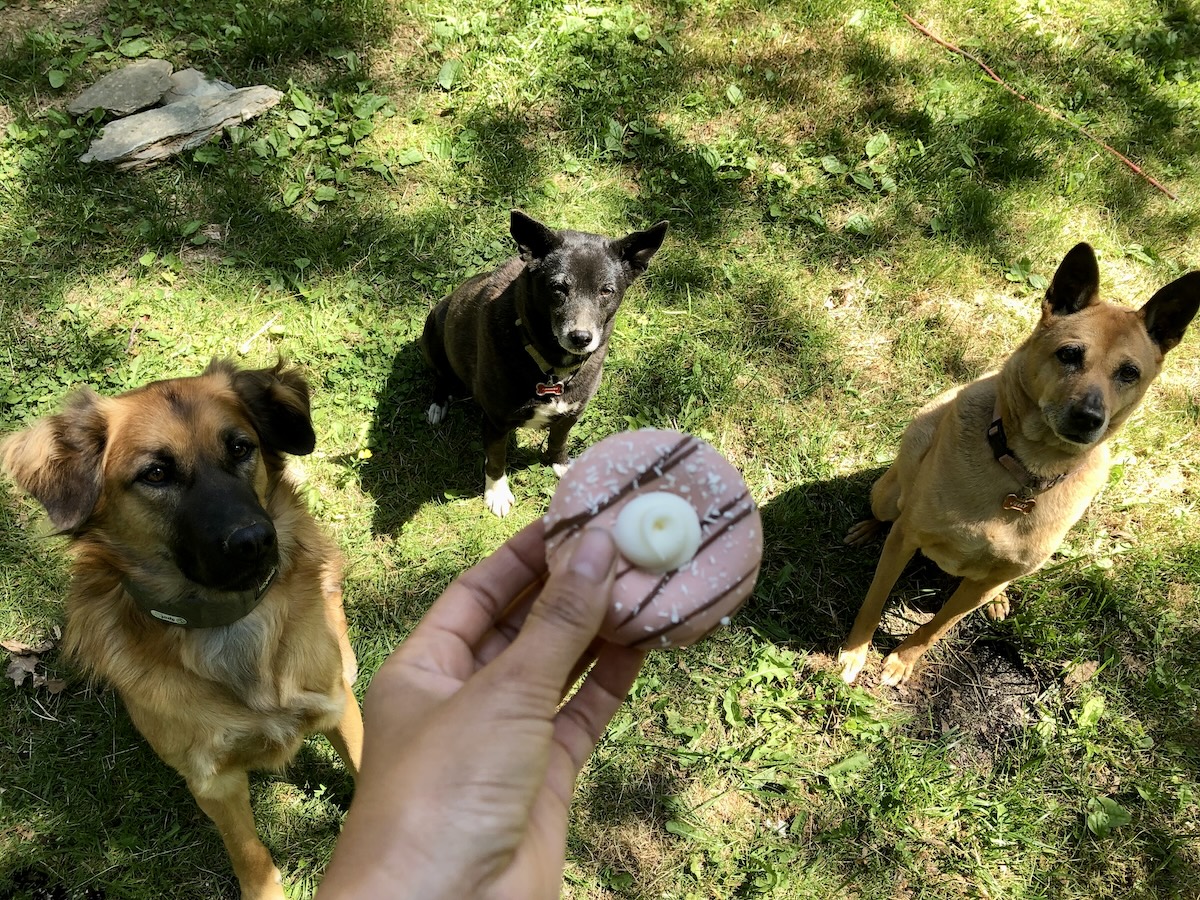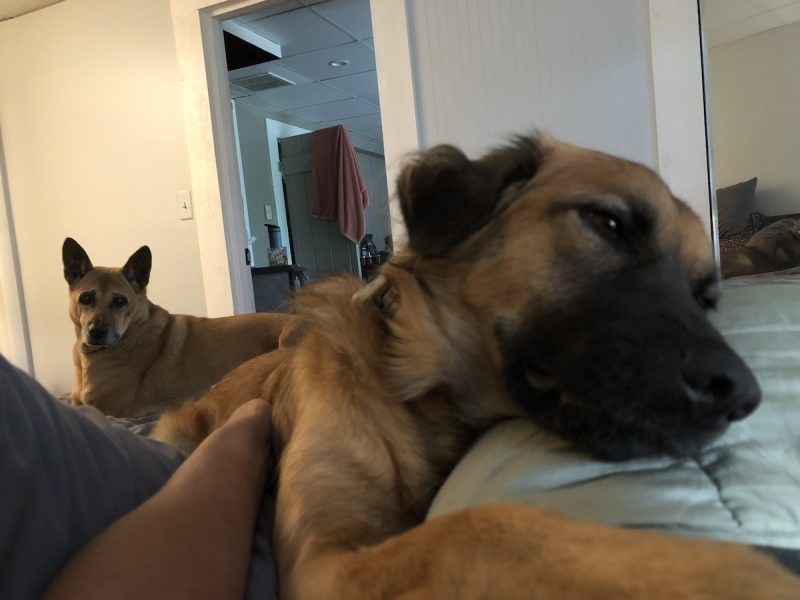Original Article: https://www.dogster.com/doggos-weekly/mimicking-behaviors-among-the-trio
Hi, I’m Allison! Read my introduction to learn more about me and my three mixed-breed dogs from Thailand, Jelly, Lorraina, and Manic.
Have you heard the saying that imitation is the most sincere form of flattery? People copy hairstyles and wear similar clothes to those they admire. Sometimes, they even pursue the same hobbies or athletic activities to be like someone they look up to.
But what about dogs? Do dogs mimic other dogs? Living with three dogs has shown me that they definitely do. But why does my trio mimic each other?
What the Science Says About Mimicry in Dogs
Research has been done about dogs and mimicry. I came across a study titled “Dogs Copy Other Dogs’ Actions Selectively, The Way Humans Do” discussing selective imitation. This article helped me understand why Jelly, Lorraina, and Manic mimic certain behaviors.
The authors, Friederike Range and Ludwig Hube, stated that dogs do not mimic any action they observe but mainly because of the result from that action. The dogs used in the experiment were tasked with opening a container with food by pulling a rod. Some dogs used their mouths to pull the rod, while others used paws. One dog was given a ball to hold in her mouth, thus pushing her to use her paw to pull the rod. This was a lot easier overall.
Seeing this, the other dogs used their paws and were rewarded with getting to the treats sooner. This was an excellent example of mimicry for a benefit.

How My Dogs Mimic Each Other
Now, what does this mean for my guys? I am neither a scientist nor an engineer, so I will not be creating some kind of mechanism to determine if my dog will mimic the one who got treats most efficiently. Instead, I watched their everyday behaviors.
The first time we noticed mimicry, it was related to food. We never really taught Jelly and Lorraina too many commands. They knew the basics: sit, stay, and come. Granted, they only really paid attention to “sit.” We tried to be better at training Manic. I taught him how to “high five”—something he still does several times a day.
When we had treats for the trio, we made them all sit and asked Manic for a high five. We try to respect the social hierarchy: Jelly gets her food and treats first, followed by Lorraina, then Manic. Once Jelly and Lorraina got their treats, Manic would give his high five and get his. Jelly would often watch this and lift her paw since she had already gobbled down her treat. I think she saw Manic getting treats and praise and hoped to get a second round of snacks if she gave me a high five as well. Lorraina would often try to lift her paw, but her limbs were a little stiffer due to past injuries.
The next incident of mimicry was not food-related at all. Since Jelly was young, she would rub her face with both paws whenever she was about to sleep. It was downright adorable. And, as all dog owners know, whenever our dogs do something even remotely cute, our hearts simply melt. So, we would coo over Jelly and her sleepy-time face every time.
When we first got Manic, he slept on a mat on the floor. But when we moved to the US, he decided he was no longer a floor dog but a bed dog, sleeping next to Jelly. After a few months of this, my husband and I noticed that Manic started rubbing his face before he fell asleep. And, just like Jelly, we fawned all over him when he did it.
So, he learned to be adorable to get attention. Not the same as food, but maybe better.

What Action Will They Mimic Next?
Food and attention seem to be my trio’s major components of mimicry. I wonder what else they would try to do. What other behaviors lead to positive results from me and my husband? Maybe I could try to reward one dog for bringing me my slippers in the morning and see what happens.
Source: Dogster












